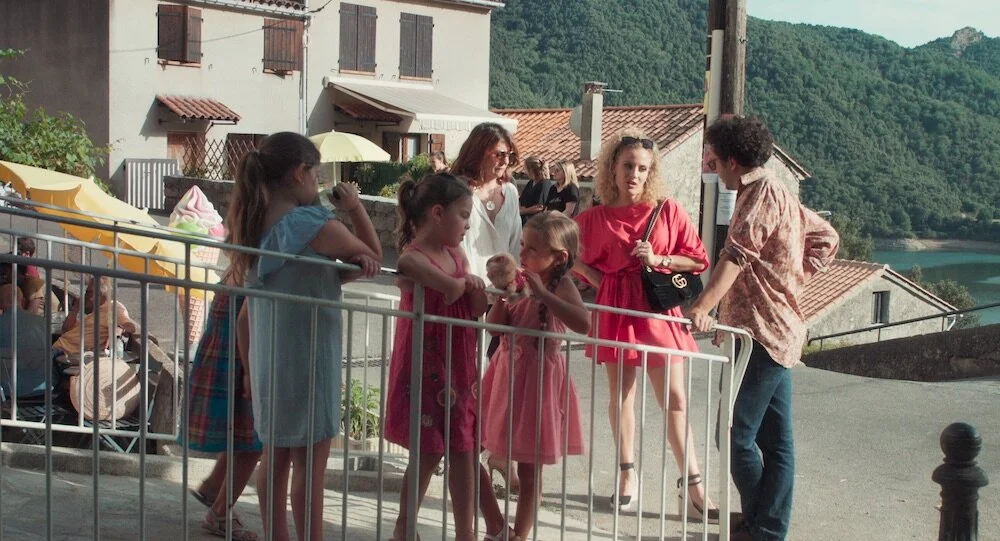‘Liborio’
After some activity in the 1970’s and ‘80’s, the Dominican Republic enjoyed a rich cinematic presence during the early 2000’s. But in the last ten years, fewer than 10 films have been made on the Spanish speaking part of the island of Hispaniola in the Greater Antilles. While a desirable tourist destination, it seemed that movies weren’t the DR’s priority.
But at this year’s International Film Festival Rotterdam, which is taking place online from February 1st to the 7th, there is one entry from the Dominican Republic, titled ‘Liborio’ by Nino Martínez Sosa. What is fascinating about Sosa is his background, having trained in Cuba at Escuela Internacional de Cine y Televisión, and then moved to Spain where he has made a career for himself as a film editor. But a return to his country of birth has brought about a quiet gem of a film that is both a love song to the island culture of his native DR and a voyage into the magic in spirituality and how believing in something can help create a reality.
Wow, and is that last message something terribly important for all of us at the moment! I mean, as we’re left imprisoned and hopeless while world leaders and Big Pharma play their medical war, I’ve personally began to lack the belief that we’ll have something, any semblance of a normal world to come out to, at the end of these lockdowns. Faith, in fate, is an important part of our personal mental health.
‘Liborio’ is beautifully shot, wonderfully yet understatedly acted, and is the kind of film that leaves more questions unanswered than perfectly explained. There is a Lucrecia Martel feel to the story and even Sosa’s long silent takes and antiqued coloring are reminiscent of Martel’s genius.
The story unravels in chapters and follows the different points of view of characters involved in what can most easily be described as a cult. Living on the southern side of the island, Liborio and his followers believe in his magical powers, to raise the dead and perform miracles. But the real magical talents of Liborio lie indeed within his followers. Their hope, their perfect faith and unwavering courage create a sense of community that jumps out of the screen and performs a special kind of miracle in the viewer of this sultry, slow paced film.
I felt transported to another time and place through ‘Liborio’ and found a little bit of hope within myself at the end of my viewing. Oh, and maybe you too will gaps a bit at the final shot.
A still from ‘I Comete — A Corsican Summer’ by Pascal Tagnati
‘I Comete — A Corsican Summer’
‘I Comete’ takes place instead on the Mediterranean island of Corsica, world away and in a much more recent era. As a child I went there one summer with my BFF and her family on a wonderful boat trip that never left my heart. Corsica is one of those places that seem inaccessible by land travel and only unravels its full beauty when approached from the sea. Little pristine coves with water as transparent as a light aquamarine, sands sparkling in the sun and quaint port villages that welcome the weary travelers sailing in with cool ice cream and warm vibes are there, to be discovered by the adventurous voyager.
But filmmaker Pascal Tagnati, who also appears in his film as Théo, looks at his Corsican village with the eyes of those who leave a place and then choose to return, even if just for a season. His mixture of professional actors and fellow villagers blends easily into a story that is part documentary and part fiction, but also mostly longing for a place and memory that no longer exist. The documentary aspect lulling us slowly into a tale that begins as life unfolds, without a bang, and ends also in the way real life happens, without tying up all the strings.
While I found ‘I Comete’ thoroughly enjoyable, I also found it lengthy at times and a couple of scenes jarred me in a way that took my attention away from the atmosphere so perfectly created — which is the most admirable talent Tagnati possesses, to truly bring us into the life of the village, even as we sit in front of our computers watching the film from worlds away. I felt sorry to have woken from the dream of the slow, sultry tale of various islanders interacting and showing their culture, along with their shortcomings, dreams, and everyday life. I wish those scenes hadn’t been there to confuse my memory — because ‘I Comete’ felt like a perfect film up to those moments. I’m curious to know how other viewers will feels about those moments.
That said, the cinematography, the acting, the interactions between characters like the African, adopted François-Régis (played with such wonderfully understated charisma by Jean-Christophe Folly) and his Grannie, in their interactions of various dialects, mannerisms and languages, are sublime. I felt like a fly on the wall of a very private conversation. A conversation I might like to be a part of again… So I look forward to more titles from filmmaker Pascal Tagnati.
For more information about these films and the International Film Festival Rotterdam, check out the IFFR website. The festival runs through February 7th 2020.

